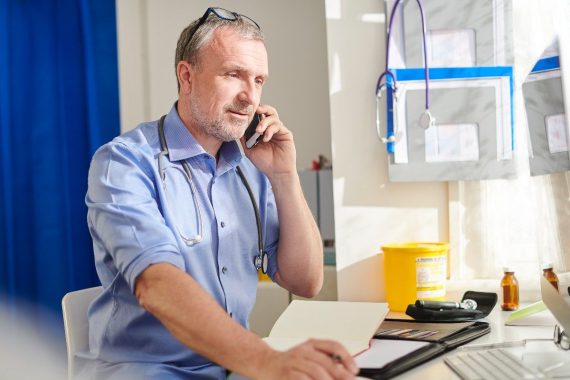GP practices must receive 10% of NHS backlog billions, BMA tells Treasury

The BMA has asked the Treasury to stump up a further £5-7bn in funding to clear the elective care backlog in England, 10% of which it said must go towards general practice.
In a letter to Chancellor Rishi Sunak, laying out the BMA’s priorities for the spring budget, the doctors’ union also asked for ‘urgent investment’ towards upgrading GP premises, which it described as being in a ‘sorry state’.
It also called for a drastic expansion in medical school places; increased pay for NHS doctors; and a ‘solution’ to ‘punitive’ pension taxation, which is prompting GPs to retire ahead of time.
In the submission, the BMA highlighted the £10bn already pledged by the Government towards clearing the elective care backlog, but it said it estimated ‘a further £5bn-£7bn will be needed across the spending review period and beyond’.
The letter said: ‘Primary care must support patients with long term conditions who might not have received care over the pandemic as well as patients who are waiting for access to secondary care and so need support in the community whilst they are waiting need additional care on top of business as usual treatment.’
And it said that ‘10% (roughly equivalent to the primary care share of the NHS budget) of the elective recovery spend should be allocated to primary care to support this, on top of the additional funding required to fully clear the backlog’.
It comes as the Government’s long-awaited elective recovery plan, published last month, suggested GPs’ role in tackling the NHS hospital backlog will focus on the use of ‘advice and guidance’. However, it allocated a mere £9.9m to support this work, via an ‘Investment and Impact Fund’ for PCNs.
Meanwhile, regarding GP premises, the BMA’s letter said: ‘We have long highlighted the sorry state of general practice premises… We are therefore calling for urgent capital investment in GP through the creation of a new fund for GP premises.’
While it did not specify an amount, the BMA said the fund should be ‘ringfenced for GP premises specifically’ and ‘be apportioned to localities according to need, based on needs assessments conducted by ICSs’.
In light of the pandemic, GP practices will need extra funding to ‘support improved ventilation, social distancing and the provision of isolation rooms to ensure they are fit for purpose’, the BMA’s submission added.
It comes as a BMA survey, published in 2018, found that half of GP practice buildings are not fit for purpose and the BMA has previously urged the Government to invest ‘at least’ £1bn capital funding in GP premises.
On expanding the doctor workforce, the BMA’s letter to the Treasury said that the ‘number of medical school places must sharply increase’.
‘In order to expand the workforce so that we have the same number of doctors per patient as comparative countries by 2030, we would need over 11,000 additional medical school places per year over the next three years, at a total cost of £8bn or £2.7bn per year.
However, it acknowledged that ‘given the simultaneous challenges of expanding the teaching space and the academic workforce, we recognise that there may need to be a step-by-step ramping up of new medical school places’.
It said that ‘in parallel’ the Department of Health and Social Care and NHS England ‘must also carry out an assessment of the future healthcare need of the UK population and set out how the remaining medical shortfall will be resolved in the coming decade’.
And it said the Government ‘must match medical school place expansion with sufficient clinical placements, foundation programme places and corresponding specialty and, crucially, GP training places’.
In addition, the BMA called for:
- A £1bn ‘welfare and wellbeing fund’ for NHS staff.
- An enhanced remuneration package for the NHS, including an above inflationary pay award and a solution for punitive pension tax rules.
- Continued free Covid testing for NHS staff and members of the public who have contact with the clinically vulnerable.
- A further £5-7bn to manage the backlog of non-Covid care, with 10% elective recovery funding allocated to primary care.
- Investment in mental health to ensure true parity of esteem with physical health.
- Increased funding for public health to address health inequalities.
- A priority on health prevention to minimise pressure on the health system and reverse the worrying trends in population health.
Pulse July survey
Take our July 2025 survey to potentially win £1.000 worth of tokens

Related Articles
READERS' COMMENTS [1]
Please note, only GPs are permitted to add comments to articles











10 % for 90% of NHS contacts, wow, pittance. (really should be 25 to 30%. of the budget.